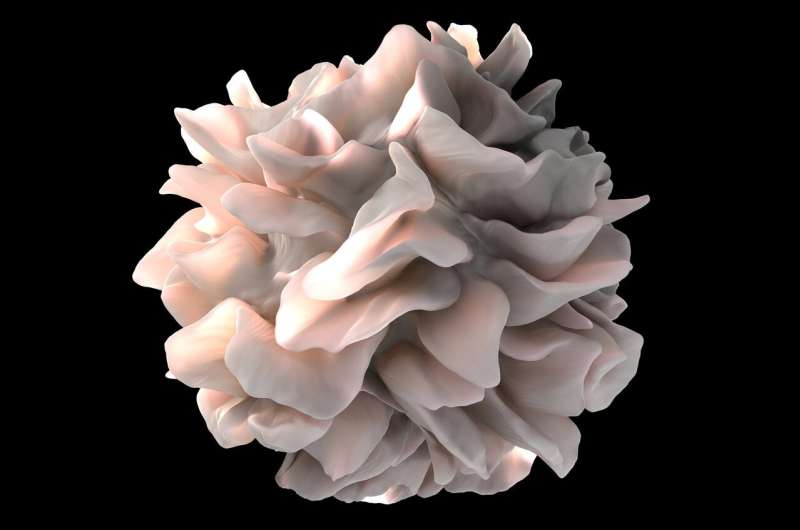Clarifying the role of a protein released by immune 'dendritic' cells could yield better treatments

Inflammatory bowel disease (IBD), which afflicts millions of people worldwide, arises when the immune system mounts an overly aggressive response against microorganisms, dietary substances, or cells of the gut. A*STAR researchers have identified specific cells and molecular signals that maintain appropriate immune activity, and that may be disrupted when IBD develops. The insights open possibilities for new treatments to combat IBD.
The human intestine carries a complex mixture of microorganisms: some benefit the digestive system and general health, while others can cause serious illness. The cells of the immune system need to balance responding effectively to attack harmful infections in the gut with tolerating harmless microorganisms and other gut contents. If the immune response is over-aggressive, it causes the intestinal inflammation that leads to the symptoms of chronic IBD.
"We discovered that interleukin-2 protein secreted by specialized immune cells, called dendritic cells, in the intestinal lining, keep inflammation in check," says Alessandra Mortellaro of the A*STAR Singapore Immunology Network. She explains that interleukin-2 released by dendritic cells achieves this effect by suppressing the activity of other immune system cells called inflammatory T-cells. In a further demonstration of the sophisticated immune control network, the dendritic cell interleukin-2 also promotes the generation of other specialized T cells that suppress the immune response.
Interleukin-2 is released by many types of cells in the body, including dendritic and T-cells. To clarify the specific role of interleukin-2 released by dendritic cells, the A*STAR team sought a way to separate the effects of different sources of the protein. "To achieve this, we generated mice that did not specifically produce interleukin-2 from dendritic cells," says Mortellaro. These mice suffered severe and spontaneous intestinal inflammation.
The researchers also discovered that the mice had a different form of inflammation than mice in which interleukin-2 production was knocked out from both dendritic cells and T-cells. Finding that the dendritic cell interleukin-2 performs distinct and specific functions "was a real breakthrough moment," explains Mortellaro. The processes in mice are assumed to be similar to those in humans.
By unraveling molecular details of the signaling systems to reveal the specific and previously unknown role of interleukin-2 from dendritic cells, the researchers hope to prompt new research into possibilities for treatment. One option could be finding ways to specifically boost interleukin-2 production by dendritic cells. The researchers also want to understand if dendritic cell interleukin-2 regulation is involved in other inflammatory and autoimmune diseases affecting tissues such as the skin.
More information: Andrea Mencarelli et al. Calcineurin-mediated IL-2 production by CD11chighMHCII+ myeloid cells is crucial for intestinal immune homeostasis, Nature Communications (2018). DOI: 10.1038/s41467-018-03495-3

















